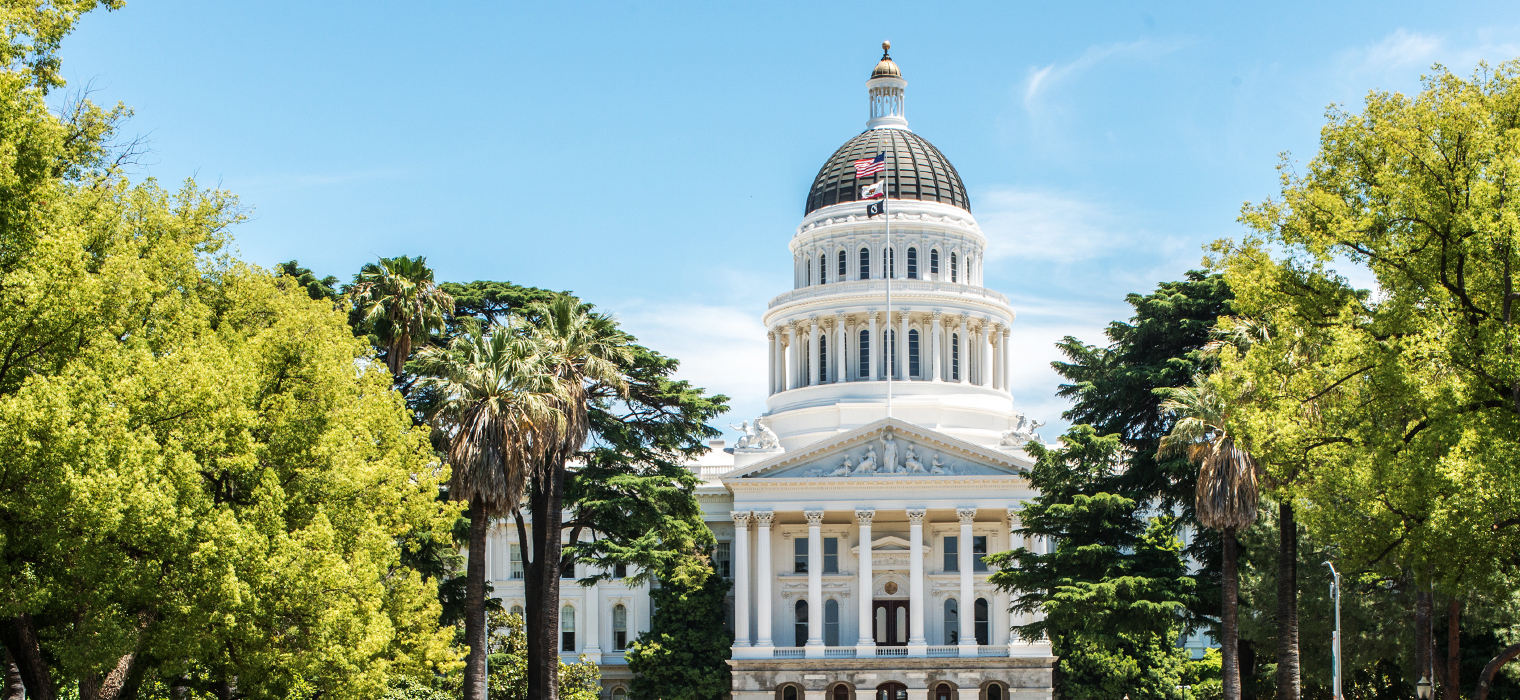Busy Year at Capitol Yields New Transportation Laws
Greenhouse Gas Emissions, Traffic Safety, Lease of State Property for Emergency Shelters Among 2020 Changes

The following transportation-related legislation that affects Caltrans became law this year:
Assembly Bill 29, Senate Bill 7 — State Highway Route 710 and Surplus Non-Residential Property
(Holden, Portantino)
These bills remove the unconstructed portion of State Route 710 between Alhambra Avenue in the city of Los Angeles and California Boulevard in the city of Pasadena from the state freeway and expressway system. The legislation authorizes the relinquishment of a portion of SR 710 in the city of Pasadena, if Caltrans and the city enter into an agreement. The bills also extend a rent freeze for participants in the Caltrans’ Affordable Rent Program on SR 710 and establish a valuation method for the sale of surplus SR 710 non-residential properties to nonprofit and city tenants.
AB 252 — Department of Transportation Environmental Review
(Daly, Frazier)
This bill permanently extends Caltrans’ authority to conduct federal environmental reviews on transportation projects on behalf of the Federal Highway Administration. This bill continues a successful process that streamlines the completion of environmental documentation, which accelerates the delivery of projects.
AB 285 — Greenhouse Gas Emissions
(Freidman)
This bill adds new requirements for the California Transportation Plan and requires the state’s Strategic Growth Council to submit an interim report to the Legislature by January 31, 2022 on how to align transportation and housing funding programs. The requirements will increase agency coordination and evaluation of funding programs to reduce greenhouse gas emissions.
AB 759 — Traffic Safety
(Bigelow)
This bill requires Caltrans to update its guidance by July 1, 2021, on the use of protection measures in highway work zones. The Department also must pay for optional safety devices when requests are made by contractors working on public works projects until January 1, 2025.
AB 1351 — Transit Operators – Paratransit and Dial-A-Ride Services
(Lackey)
Under this bill, the California State Transportation Agency will publish an assessment on the use of dial-a-ride and paratransit services by July 1, 2021, with recommendations on how service providers can establish reciprocity for users visiting areas outside of their home services area. This bill is intended to minimize the difficulty that persons with disabilities have when using paratransit services outside their primary residence.
AB 1671 — Motor Vehicle Technology Testing
(Berman)
This bill extends Caltrans’ authority to conduct a truck platoon testing program from Jan. 1, 2020 to Jan. 1, 2024. The technology coordinates and assists with the operation of trucks traveling within 100 feet of each other, to achieve fuel consumption and air quality improvements.
SB 137 — Federal Transportation and State Funds Exchange
(Dodd)
This bill requires Caltrans to implement a program that allows local entities to exchange certain federal funding for State Highway Account funds, up to $100 million in total. This exchange streamlines the delivery of local projects without reducing Caltrans’ efficiencies by relieving the local agencies of federal environmental review requirements.
SB 211 — Emergency Shelters
(Beall)
This bill allows Caltrans to lease state highway property for emergency shelters or food services for $1 per month to help address the statewide shelter crisis until January 1, 2029.
SB 504 — State Highway Route 1 Relinquishment
(Monning)
This bill authorizes the California Transportation Commission to relinquish a portion of State Route 1 within the city limits of Pismo Beach to the city’s jurisdiction, provided the city and Caltrans agree.
SB 742 — Intercity Passenger Rail Services
(Allen)
This bill allows intercity transportation operators, Amtrak and government entities to reach revenue and ticket-selling agreements with each other to provide more seamless transportation and connections for persons who are not necessarily connecting to a passenger rail service. This bill streamlines the process for intercity rail and bus services to provide continuous travel across the state, provides access to priority and underserved communities, and reduces greenhouse gas emissions.
Source: Caltrans Office of Legislative Affairs

